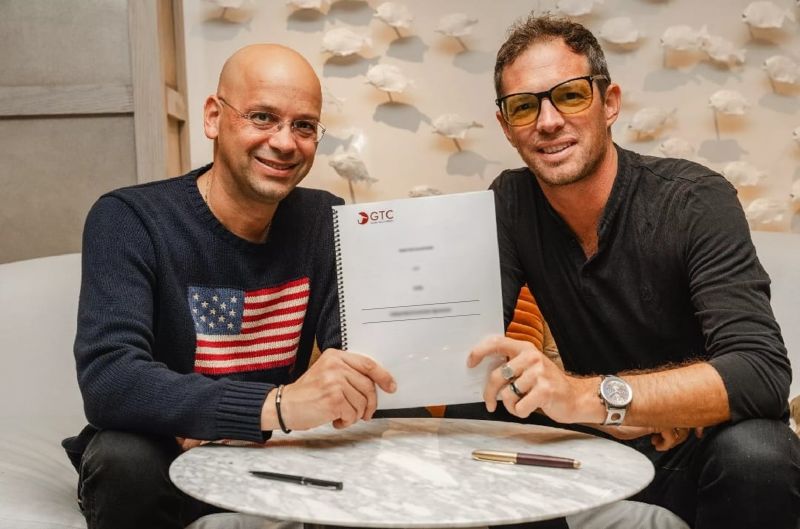Running an MNO must be complex. These are vast bureaucratic organisations employing thousands of people working across thousands of projects. Because of this, important ‘projects’ such as A2P SMS, firewalls or RCS investments can struggle to find a ‘home’. Instead, they are often managed across several different departments at the same time: advertising, wholesale, enterprise, roaming etc. Obviously, this makes it harder for them to acquire committed sponsors and prioritisation.
It’s easy to see how MNO leaders might be overwhelmed by the sheer number of daily decisions they have to take. So with that in mind, here’s a quick ‘start, stop, continue‘ guide. It will highlight some of the big decisions facing operators in today’s messaging market – and show how we think they should react going into 2022.
Start… taking RCS seriously
We can safely assume that RCS is now quite widespread. However, anyone working inside the mobile space – and especially in messaging – knows that the rollout remains ‘patchy’. It’s actually quite difficult to get an accurate picture of RCS availability. Even the GSMA website only publishes numbers for June 2020 – at which time it lists 90 operator launches in 60 countries.
Some MNOs/regions appear fully committed to the channel. Most notably, Japan. Its MNOs KDDI, NTT DOCOMO and SoftBank have all launched what they call the +Message service using the GSMA’s RCS standards.
But elsewhere, there is clearly some reluctance to get on board. Attitudes to RCS can even vary inside a single telco group. Telefonica is a good example. Its operating businesses in Mexico and Brazil have launched RCS with Google, while its European counterparts chose to work with Mavenir. Elsewhere in LATAM, other markets are still slow to make a start.
We can speculate as to why, but the probable causes are a lack of confidence in the channel or uncertainty in which provider to choose. Many MNOs are asking themselves: is it wise to place the future of operator messaging in the hands of the world’s biggest OTT company? We’ve discussed the uneasy relationship between Google and MNOs before and can hardly blame telcos for wrestling with this question.
Which is worse though? Partnering or competing? By working with Google, operators can at least create a compelling challenger to Facebook’s growing OTT messaging suite. By avoiding Google (and incentivising Google to launch its own cloud messaging products), MNOs will have to protect A2P revenues from two global giants at once.
A passing opportunity
That said, time is money so ignoring RCS may prove a costly decision. Enterprises are turning to richer messaging channels (WhatsApp Business) and cheaper 2FA methods (Flash Calls) as SMS prices rise around the world. We expect SMS to remain a robust fallback channel for years to come, but it’s also likely to be sidelined to some extent as OTTs encroach on A2P territory.
RCS, therefore, gives operators a chance to reinvigorate their A2P portfolios. The pandemic obviously shifted their short-term incentives. MNOs focused on damage control, and revenue assurance dampened any appetite for new projects with long-term payback.
After all, who would champion RCS in such an environment? The commercial models and revenue potential are far from settled. And it looks as if Apple’s participation is unlikely. Then there are the practicalities of launch. RCS can’t simply be switched on. MNOs have to integrate a hub, update devices, then educate consumers and brands, relying on aggregators too to drive demand.
The good news is that, at least in Europe, regulation is putting pressure on tech ‘gatekeepers’ (Apple, Meta/Facebook, Google and more) to enable cross-platform messaging. RCS is poised to be part of that solution as those requirements come into force. If effective, this could speed up rollout and customer awareness to a tipping point.

Stop… stretching SMS pricing to its limits
Prices have been edging up, and many aggregators (and their customers) are not happy about it. The price hikes are especially visible for international business, with many operators applying a premium to overseas traffic.
It’s a dangerous game, not least because of the existence of so many alternatives. Virtually all the OTT message channels are now targeting businesses. Just in the last few days, for example, WhatsApp began beta testing a new, cloud-based version of its WhatsApp Business API. It says this will reduce the setup time for integrating with the API from weeks to minutes.
A2P revenues: gone in a flash?
And it’s not just brands that are considering these alternatives. Messaging aggregators have mostly re-invented themselves as CPaaS providers. They deal in digital comms, whatever the flavour. SMS is merely one of many menu items. They will adapt to customer demand as needed and happily move away from SMS when something more (cost) effective emerges.
Indeed, there are glimpses of this diversification in the SMS two-factor authentication space. As noted in another blog post, SMS 2FA is a huge part of MNOs’ A2P revenues. But even these revenues are now under threat from the flash call – a missed call that delivers a one-time passcode.
The missed call number (or part of it) is itself the code used to authenticate the user. And when the recipient gives permission for the app in question to access the call log, they don’t even need to enter the code manually. Friction-free for the user, super affordable for the sender and zero revenue for operators.
MNOs might yet find a way to productise additional A2P services such as flash calls. They may even co-exist alongside SMS based authentication but only if SMS is priced fairly – and recalibrated quickly in markets where brands are already seeking alternatives.
Continue… developing anti-fraud solutions
The ongoing fight against fraud must be one of the most arduous aspects of running a business messaging service. Fraud never stays the same, and it never goes away. It’s an expensive, ever-evolving puzzle to keep pace with the next big threat to the network.
Operators have come to realise that they have finite resources and expertise in this area. CAPEX models prove problematic due to prohibitive budgets and expensive upgrades that are required to keep new threats under control over time.
For this reason, teaming up with specialist partners on firewalls is the sensible way forward. Professional firewall management services are dedicated to improving fraud solutions daily. This is vastly different to MNOs who implement filters in their network from time to time – allowing grey route providers to adapt and continue delivering traffic between adjustments. Ongoing monitoring and agile improvements are what keep A2P firewalls effective – for that operators should reach out for external expertise.
At GTC, we work with MNOs around the world to help them understand RCS, monetise SMS and manage fraud solutions to protect networks and boost A2P volumes – all will be relevant in 2022. You can speak to us to see how we might be able to support your A2P objectives.
Global Telco Consult (GTC) is a trusted independent business messaging consultancy with deep domain knowledge in application-to-person (A2P) services. GTC provides tailor-made messaging strategies to enterprises, messaging service providers, operators and voice carriers. We have expertise in multiple messaging channels such as RCS, Viber, WhatsApp, Telegram and SMS for the wholesale and retail industry.
GTC supports its customers from market strategy through service launch, running the operations and supporting sales and procurement. The company started in 2016 with a mission to guide operators and telcos to embrace new and exciting opportunities and make the most out of business messaging. For more information or industry insights, browse through our blog page or follow us on LinkedIn.



